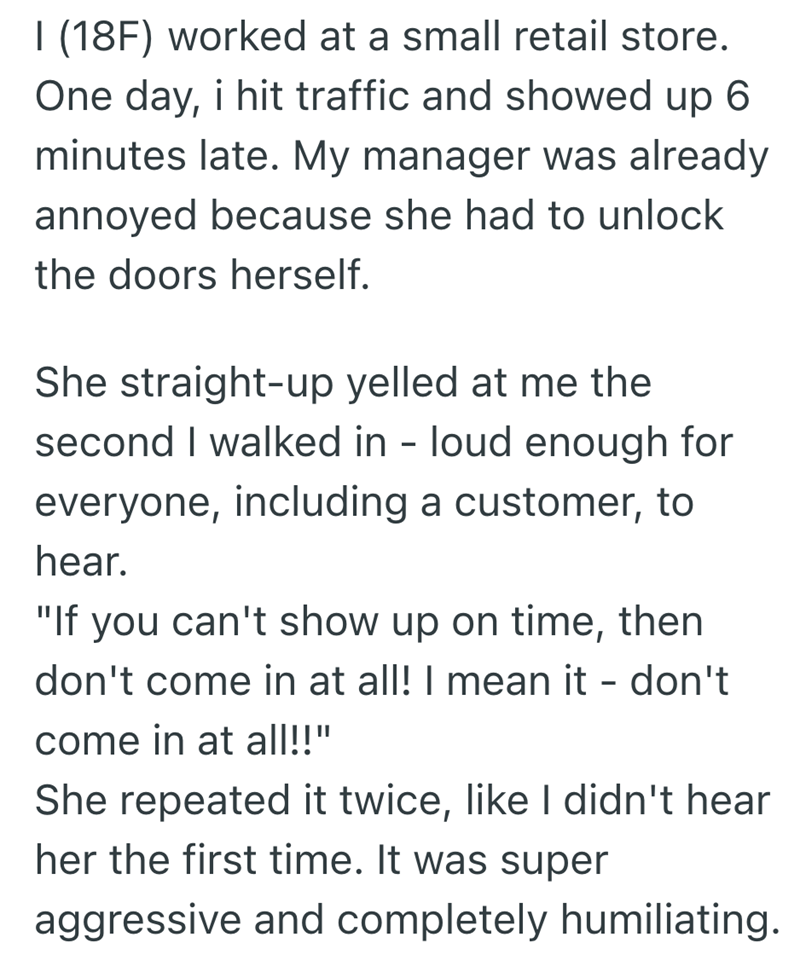When you give an ultimatum at work, be ready for someone to take it literally. One manager learned this the hard way.
An 18-year-old employee was running six minutes late due to traffic. When she arrived, her manager scolded her in front of customers and told her not to bother coming in at all if she was late again.
So, the next time she was running behind, she followed orders — and went straight home.
Instead of rushing in, she turned around and left, doing exactly what she’d been told. The manager’s bluff had been called, and the decision now rested with them: enforce the threat or face the fallout.
Ultimatums at work can backfire — especially when the employee decides to take you at your word.

This story highlights a common issue in low-wage retail jobs: managers using power in unprofessional ways. The employee, an 18-year-old, was only six minutes late due to traffic—something outside her control. Instead of handling the situation with a calm conversation, the manager chose public humiliation, shouting in front of a customer and repeating an aggressive ultimatum.
This kind of behavior is not only disrespectful but also counterproductive. A six-minute delay hardly justifies such an overreaction. Yelling at staff in front of others damages morale and creates a toxic work environment. It signals a lack of basic leadership skills and emotional control.
The manager’s statement—“Don’t come in at all!”—is especially reckless. Words like that, even if said in frustration, carry weight. When employees are told not to come in if late, some will take that literally. This sets the stage for unnecessary conflict and turnover.





